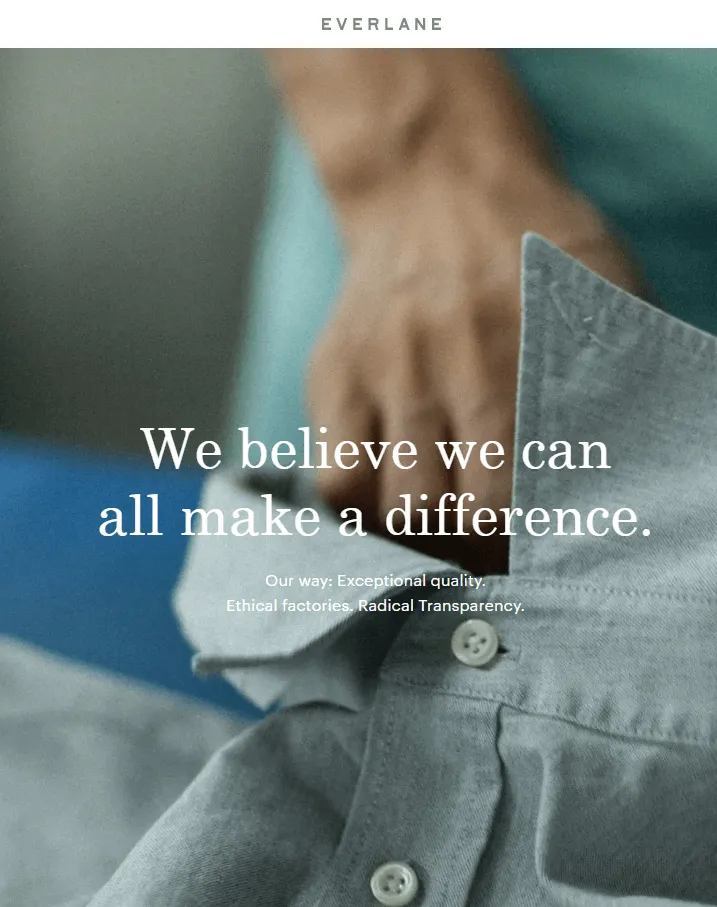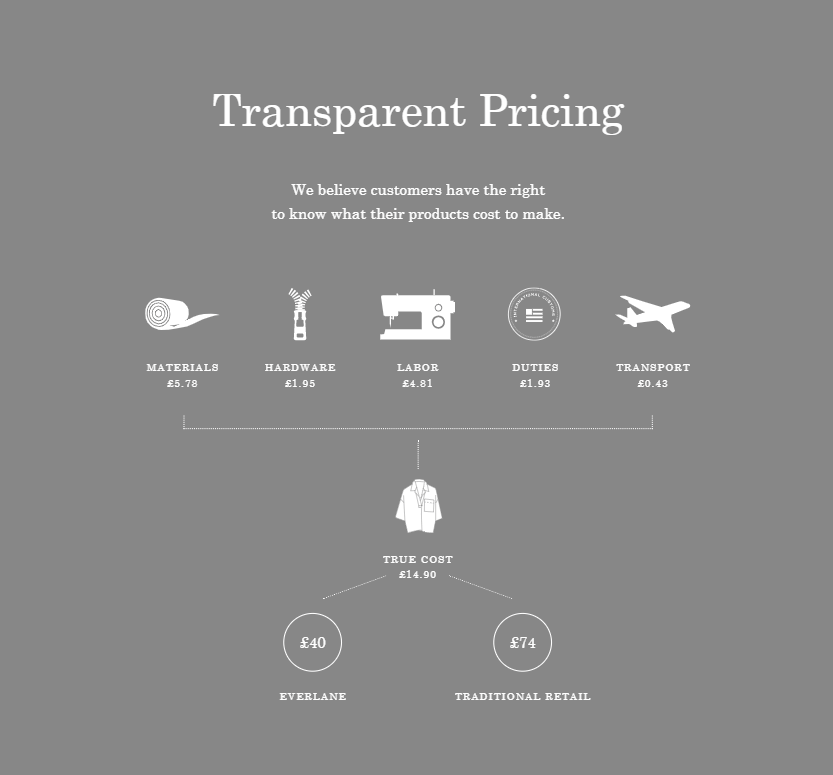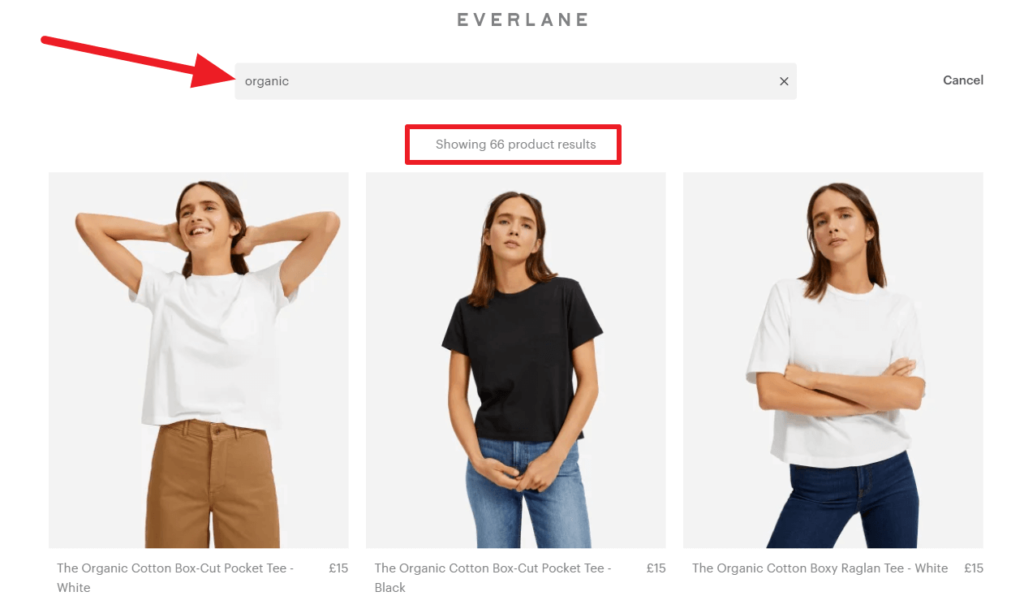
What exactly is Ethical Fashion?
Fast fashion has always been the status quo.
Most of us shop at places like Zara, H&M, Topshop, and a myriad of other retailers without really giving it much thought.
But when you really think about it, where do your clothes come from?
What kind of materials are they made from?
What kind of impact do they leave on the planet?
These aren’t questions many consumers often consider when shopping, especially for clothes, but that’s slowly starting to change.
With ethical and sustainable fashion coming to the forefront, it’s time to take a closer look at fashion brands and their ethics.
New fashion brands are thinking deeper: Better fabric, recycling, fair labor practices - from start to finish, totally sustainable - better for your closet and better for the environment too.
What is Everlane?
One of the most well-known “sustainable” brands is Everlane.
With a men’s and women’s line, there’s something for everyone.
They offer modern basics, and create timeless pieces that work across different seasons.

Built on a model of transparency, Everlane offers a rare peek into manufacturing and pricing processes.
They give customers a complete snapshot of where the product was created, and how much it actually cost to make.
They show you how much everything costs, from materials, to taxes, to transport.
Then, they show up much mark up they’ve added to it and how much they charge you for it.
It’s refreshing to see, as most brands hide the fact that they add huge mark ups onto truly cheap clothes.
How Ethical is Everlane?
What Everlane stand for
Everlane is built on the principle of “radical transparency.”
It’s about creating a business model that gives its customers complete access to how things are made, who’s making them, and what it actually costs.
Each item comes with a complete overview of its creation and its journey.
However, it’s important to make a distinction about their brand philosophy: It’s rooted in transparency, more so than sustainability, although that’s changing.
They say they believe in fair trade and labor practices and using organic and recycled materials, but those beliefs have not yet materialized in their product range.
The brand is built on telling you how the item was created but doesn’t always touch on the sustainability of the process.
How sustainable are Everlane’s materials?
Everlane mostly uses fabrics like cotton, linen, silk, knit, and cashmere, each fabric choice is thoughtfully made.
Unfortunately, they’re still not using all organic or GOTS Certified materials. When you search for “organic” on their site, you get 66 results, and they’re mostly just t-shirts.

Everlane’s 2023 sustainability goals include moving to certified organic cotton. Silk tops are dyed at a bluesign®-certified dyehouse, and working with producers that are creating more sustainable supply chains.
They’re also focusing on innovative ways to recycle and create fabric. The ReNew line consists of clothing and apparel made from recycled plastic bottles (see the process here!), polyester, nylon to create products that are sustainable.
Despite those product ranges, there’s no mention of how ethical their other products are.
Their recycled lines only make up a small percentage of their product line, and the majority of Everlane clothes aren’t made from sustainable materials, so it’s hard for us to say that Everlane is focused on sustainability.
How do Everlane treat their workers?
One of the reasons why Everlane became a pioneer in the ethical fashion world is because of their radical transparency. Each factory they work with is carefully audited, they cultivate relationships with owners, ensure fair labor practices are in place and there is no exploitation occurring.
But, this isn’t to say Everlane is perfect. Like any other brand, they have run into controversy in the past.
They still have some major ways to improve.
For example, it’s not always clear whether living wages are paid. They’ve also been accused of illegally laying off workers in an effort to keep from unionizing, which is unacceptable for a brand who says they care about their employees.
Explanations are not always forthcoming which has led to an understandable amount of customer frustration, as many of us don’t want to spend our money on a brand that conflicts with our personal views.
How sustainable is their production process?
Everlane has always had a laser focus on its production and supply chain.
Their denim factory, SAITEX International is one of the most sustainable factories in the world.
The factory recycles 98% of its water, uses renewable energy produced onsite, and repurposes byproducts to create affordable homes. In fact, the recycled water from their factory is so clean you can actually drink it!
This kind of transparency is found across their site. Users can look at a map with factory locations and click on each one to learn more about how it runs, who works there, and photos of each step of the process.
Wrapping up
Overall, Everlane has been at the forefront of ethical fashion, helping pave the way for other brands in a similar space to come forward.
Everlane’s approach to pricing, manufacturing, and transparency remains incredibly innovative. Coupled with high-quality materials, timeless yet modern designs, and a commitment to sustainability, Everlane is a relatively good option if you’re looking to shop from an ethical brand.
That said, there is still a lot of room for improvement.
Their materials are not all organic, and their worker treatment still isn’t as good as it should be.
The main benefit of Everlane is that their clothes are designed to be “timeless”, so you won’t have to buy as many clothes as you usually would.

![15 Best Organic Clothing Brands For Affordable Natural Clothing [2025]](/images/blog/organic-clothing-brands.webp)

